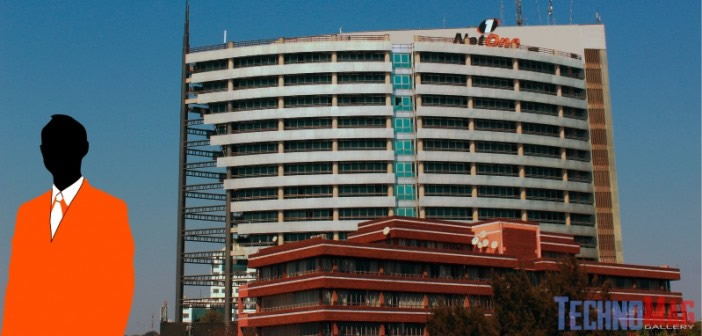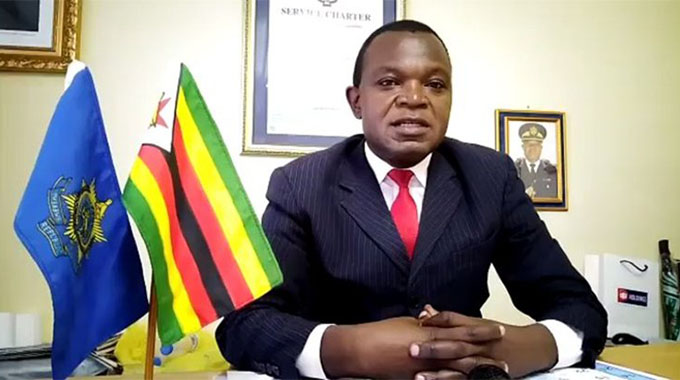I became the change I wanted: Marandure

Ruth Butaumocho Gender Profile
ZOL’s brand has grown in leaps and bounds, becoming one of the leading Internet service providers, including use of fibre-to-home technology, something that was not available only a few years ago. It now has got more than 130 ZOL spots in the country and is also providing Internet connectivity to schools in urban areas, with plans to expand the same services in rural areas.
When Mr Denny Marandure visited Zimbabwe in 2009, having been domiciled in the United States for two decades, he was shocked at the slow internet connectivity in the country.
Disappointed that he could not fulfil his wish of relocating to Zimbabwe and assist in nation building, he left in a huff and went back to his US base.
He could not fathom how he could conduct business with the rest of the world without being connected to the Internet .
ALSO SEE
However, determined to utilise the knowledge he had amassed in business and information communication technology after working for various institutions abroad, he returned to Zimbabwe last year after six years of soul searching.
Today Mr Marandure is the man at the helm of ZOL, a leading Internet service provider in the country.
He joined ZOL on September 16, 2014, replacing ZOL founding chief executive officer David Behr.
“I became the change I wanted to see. In 2009, Internet connectivity was bad. It was so frustrating and I didn’t understand how the majority of people could survive without use of Internet.
“I decided that was not the kind of life I wanted, I went back.
“But whilst I was in the US, I realised that the change that I wanted to see would not happen until I do something about it, and I decided to come back home and contribute what I had on ICT,” he said in an interview in Harare recently.
Mr Marandure’s desire to see change in information communication technology in Zimbabwe was not driven by mere passion or fanaticism.
His passion was matched by the wealth of experience he had gained working for big corporate organisations like IBM, Lucent Technologies, PriceWaterhouseCoopers and Verizon Communications — the largest US telecommunications technology company in the world — where he dedicated 11 years of his life to learn and share.
With that kind of experience coupled by his skills in the business arena, Mr Marandure knew his contribution would be invaluable once he returned to Zimbabwe.
“We do have a lot of educated Zimbabweans who are scattered all over the world and are heading very big organisations.
“Imagine the difference they would make in different sectors if they were to return home with whatever expertise they have gained and feed it into our economy. I admit it will not be easy, but it has to be a give and take situation for them, so that they can bring the change they want to see,” he said.
A graduate of the University of Zimbabwe and Howard University, Mr Marandure concedes that the decision to relocate after years in the diaspora is not always an easy one. One would have to make sacrifices, he says.
“My family is still in the US. However, I am happy with the change that I have been able to make through ZOL from the time that I came back.
“My organisation (ZOL) has greatly improved Internet connectivity in the country, in addition to various packages that Internet users have embraced,” he enthused.
ZOL’s brand has grown in leaps and bounds, becoming one of the leading Internet service providers, including use of fibre-to-home technology, something that was not available a few years ago.
It now has more than 130 ZOL spots in the country and is also providing Internet connectivity to schools in urban areas, with plans to expand the same services in rural areas.
In addition to its high connectivity, the organisation now has five shops, up from the three it had two years ago.
While many Internet service providers might say they are selling Internet services or products, Mr Marandure says at ZOL, they are providing solutions to peoples’ problems in the ICT world.
“Internet usage is more than a product. It is a solution that we are providing to millions of people out there. Take for instance the use of ICT in education, its contribution is huge.
“The brick and mortar schools that we currently have will soon disappear as schools adapt to different methods of e-learning,” he said.
For a man who has straddled the globe looking for opportunities and has worked in different countries, Mr Marandure believes that technological innovation, especially the use of information communication technology, is the pulse of economic growth for any country.
“Internet use is the biggest economy driver anywhere in the world. As a country, you cannot attract any invest if Internet connectivity is low or non-existent, because investors would need to be in constant touch with the rest of the world to remain viable.”
Mr Marandure added that already one third of the world’s population now uses the Internet with nearly six billion mobile phone subscriptions worldwide.
“We cannot undermine Internet usage, or we risk being left out by other nations.
“The Zimbabwe Agenda for Sustainable Socio-Economic Transformation (Zim-Asset) blueprint has identified infrastructure development and utilities as one of the critical clusters that should spur economic growth in this country and I must commend our parent company, Liquid Telecomm, for investing in our networks,” he said.
Despite its efficacy, Mr Marandure — like everyone else — says Internet costs in Zimbabwe are still too high.
In the Third World and developing countries like Zimbabwe, the price of Internet is the biggest barrier to entry.
“Even in deploying the Fibre-To-The-Home (FTTH), we have to look at our return on investment (ROI) to make sure it makes business sense.
“Although the uptake of Internet has been very good, I am sure the figures can go up. There is a lot of interest in Internet.
“However, the price of Internet usage is still high, prohibiting the ordinary user,” he said.
The problem, he says, will be solved once more people get connected.
- Feedback [email protected]








Comments